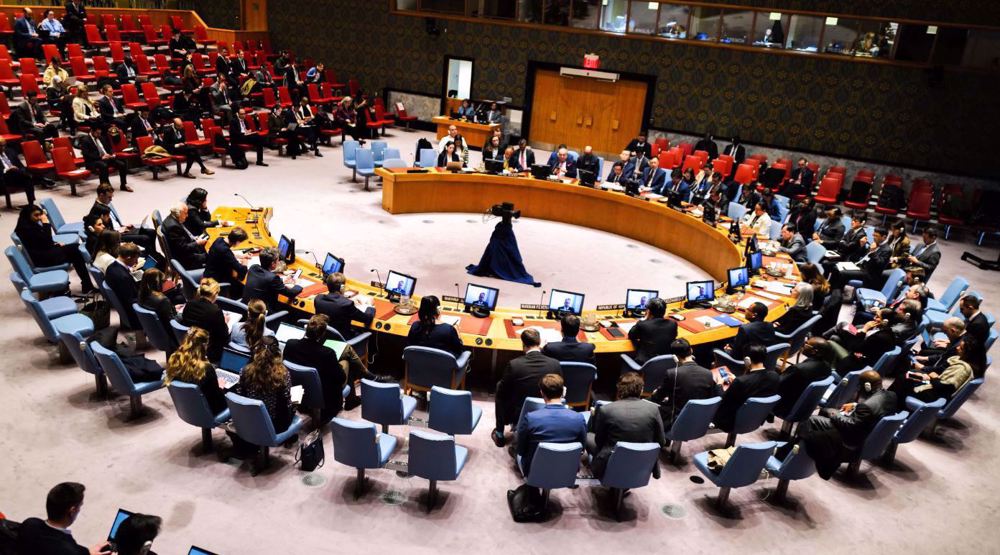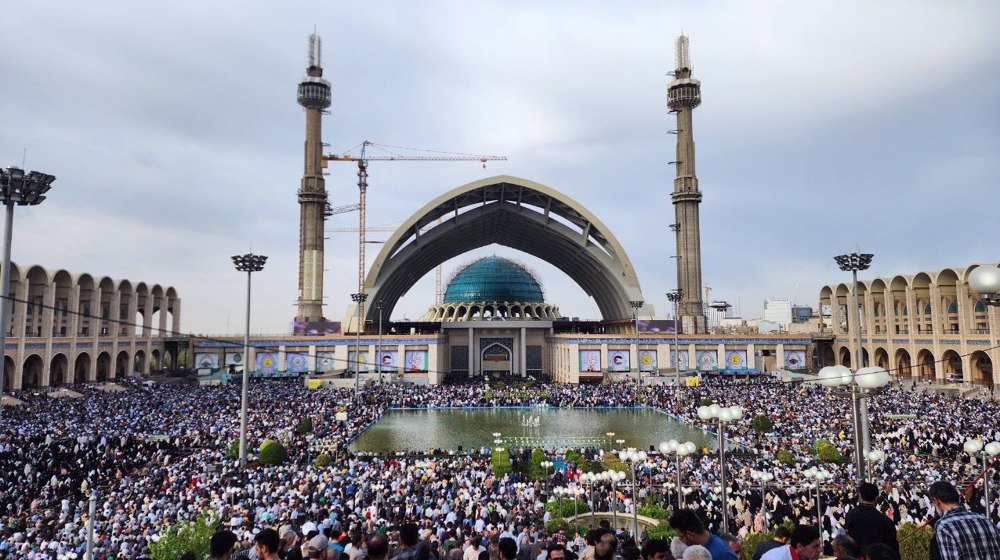Coronavirus pandemic exacerbated by politicization: WHO
The director general of the World Health Organization (WHO) says the global coronavirus pandemic has been exacerbated by politicization, stressing that the world can only be able to overcome the deadly virus by maintaining unity.
Tedros Adhanom Ghebreyesus made the remarks at a virtual health conference organized by Dubai authorities in the United Arab Emirates on Monday.
The WHO chief further said the greatest threat facing the world is not the virus itself but the lack of “global solidarity.”
"We cannot defeat this pandemic with a divided world," Tedros said.
"The politicization of the pandemic has exacerbated it. None of us is safe until all of us are safe," he added.
The new coronavirus, a respiratory disease known as COVID-19, emerged in the central Chinese city of Wuhan in Hubei Province late last year. The virus has infected almost nine million worldwide, and killed more than 471,000 people globally, according to a running count by worldometers.info.
The economic damage has also intensified, with business districts beginning to empty and stock markets to tumble.
Analysts say the world economy is headed for a sharp downturn, where several countries could plunge into recession this year.
Some countries, especially in Europe, have begun easing wide-scale lockdowns which were imposed in order to control the spread of the pandemic.
This is while the virus is surging in Latin America and parts of Asia.
Tedros further warned that the coronavirus pandemic is accelerating and "the world is in a new and dangerous phase."
He also noted that the effects of the pandemic will be felt for decades.
"We know that the pandemic is much more than a health crisis, it is an economic crisis, a social crisis, and in many countries a political crisis," Tedros said.
"Its effects will be felt for decades to come."
Antibody levels in recovered COVID-19 patients decline quickly: Research
Levels of an antibody found in recovered COVID-19 patients fell sharply in 2-3 months after infection for both symptomatic and asymptomatic patients, according to a Chinese study, raising questions about the length of any immunity against the novel coronavirus.
The research, published in Nature Medicine on June 18, highlights the risks of using COVID-19 'immunity passports' and supports the prolonged use of public health interventions such as social distancing and isolating high-risk groups, researchers said.
Health authorities in some countries such as Germany are debating the ethics and practicalities of allowing people who test positive for antibodies to move more freely than others who don't.
The research, which studied 37 symptomatic patients and 37 asymptomatic patients, found that of those who tested positive for the presence of the IgG antibody, one of the main types of antibodies induced after infection, over 90% showed sharp declines in 2-3 months.
The median percentage decrease was more than 70% for both symptomatic and asymptomatic patients.
For neutralizing serum antibodies, the median percentage of decrease for symptomatic individuals was 11.7%, while for asymptomatic individuals it was 8.3%.
The study was conducted by researchers at Chongqing Medical University, a branch of the Chinese Center for Disease Control and Prevention and other institutes.
Jin Dong-Yan, a virology professor at the University of Hong Kong who was not part of the research group, said the study does not negate the possibility that other parts of the immune system could offer protection.
Some cells memorize how to cope with a virus when first infected and can muster effective protection if there is a second round of infection, he said.
Scientists are still investigating whether this mechanism works for the new coronavirus.
"The finding in this paper doesn't mean the sky is falling," he said, also noting that number of patients studied was small.
Iran, Jordan underline need to stop Israel’s genocidal war on Gaza
Iran’s response to Israel will be ‘immediate, at maximum level’: FM
Gaza: No place for children
Voters begin casting ballots in weeks-long election in India
Venezuela slams US over reimposition of 'criminal' oil sanctions
April 18: ‘Axis of Resistance’ operations against Israeli occupation
Blinken ignoring staff recommendation to cut US aid to Israel: Report
Report: Israeli warplanes bomb positions in southwestern Syria, Iraq













 This makes it easy to access the Press TV website
This makes it easy to access the Press TV website